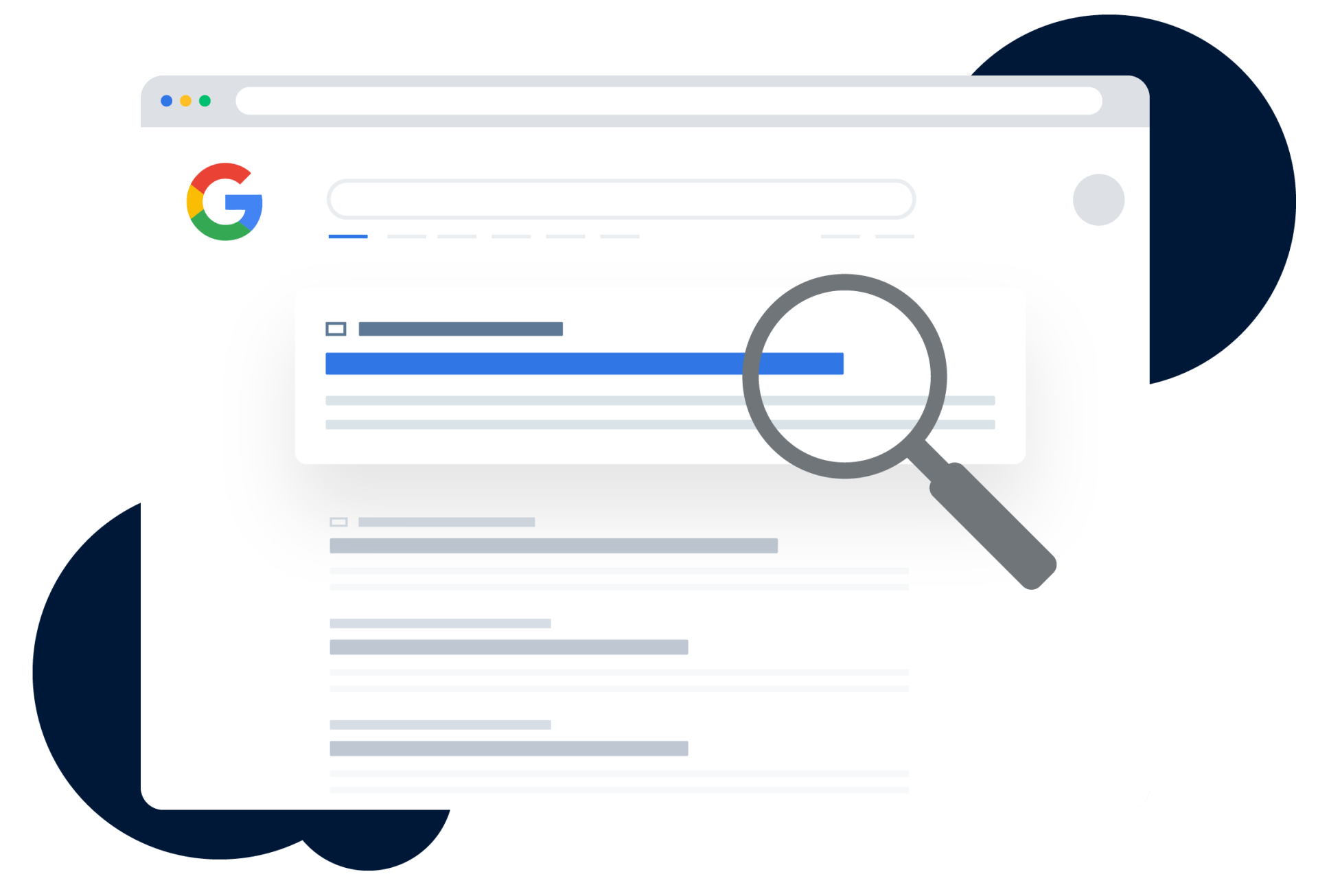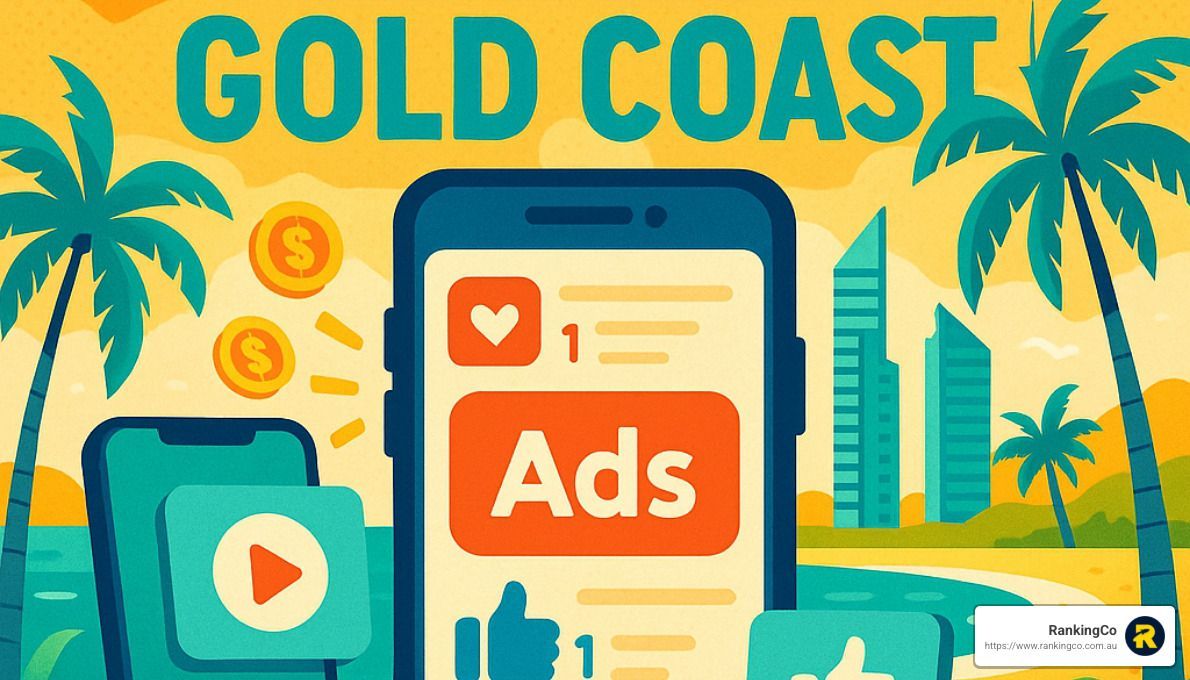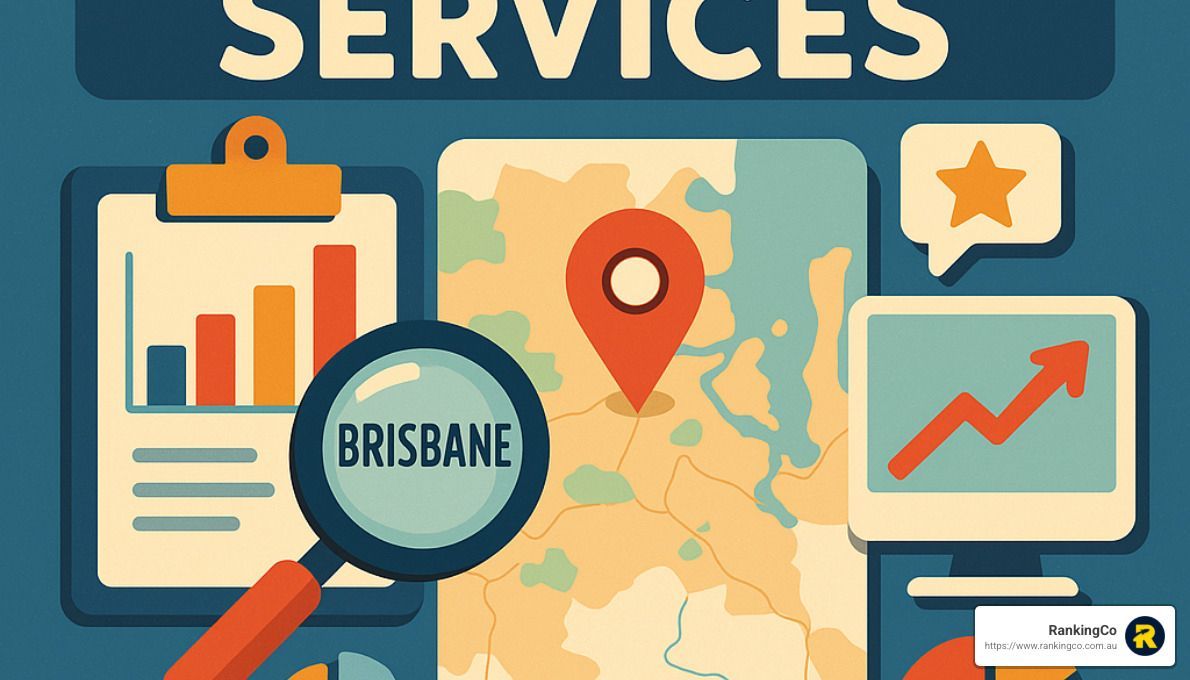SEO 101: Navigating the World of Search Engine Optimisation
Search engine optimisation is the key to open uping your website's full potential. It involves various techniques aimed at increasing your site's visibility in search engine results. This can lead to more traffic and, ultimately, more successful engagement with your target audience. Here are the basics:
- Keyword Research: Find terms your potential customers are searching for.
- On-Page Optimisation: Ensure your website content is relevant and valuable.
- Technical SEO: Improve site speed and structure for better engine crawling.
- Content Creation: Develop engaging content that satisfies user intent.
The importance of search engine optimisation cannot be overstated. Where digital marketing drives business success, mastering SEO techniques helps businesses rank higher and get noticed by the right audience. Whether you are a local shop in Brisbane or a budding online store, understanding SEO is vital.
I'm Kerry Anderson. With over 15 years in the digital marketing industry, I've helped businesses grow through strategic search engine optimisation efforts, adapting to ever-changing algorithms and digital landscapes.
Understanding Search Engine Optimisation
Search Engine Optimisation (SEO) is a powerful tool in the digital marketing arsenal. It's all about improving your website's visibility in search engine results, which can lead to increased traffic and potential customers finding you more easily.
What is SEO?
SEO refers to the practice of enhancing your website to make it more appealing to search engines like Google or Bing. The goal is to rank higher in search results for relevant keywords, driving organic traffic to your site. Organic search refers to the unpaid listings that appear on a search engine results page (SERP) based on their relevance to the search query.
How Do Search Engines Work?
Search engines are like librarians for the internet. They gather and organise information from billions of web pages, using complex algorithms to determine the most relevant results for a user's query. This process involves three main steps:
- Crawling: Search engines use robots, also known as crawlers or spiders, to scour the web and find new and updated content.
- Indexing: Once a page is finded, search engines analyse its content and store it in their vast database, known as an index.
- Ranking: When a user types a query, the search engine sifts through its index to present the most relevant and authoritative results.
Understanding these steps is crucial for effective SEO, as they dictate how your site is finded and ranked.
Why Organic Search Matters
Organic search is a vital channel for website traffic. Unlike paid search, where businesses pay for visibility, organic search results are earned through quality content and SEO practices. According to research, the vast majority of users click on organic results, making it a cost-effective way to attract visitors.
Moreover, organic search helps build trust and credibility. Users tend to trust search engines and the results they provide. By ranking higher in organic search results, your business can gain more authority and trust in your industry.
In summary, mastering search engine optimisation is essential for any business looking to thrive online. By understanding how search engines work and the importance of organic search, you can craft strategies that boost your visibility and drive more traffic to your site.
Key Components of SEO
When it comes to search engine optimisation, there are three main components you need to focus on: technical SEO, on-page SEO, and off-site SEO. Each plays a crucial role in boosting your website's visibility and ensuring it ranks well in search engine results.
Technical SEO
Think of technical SEO as the backbone of your website. It's all about making sure your site is set up in a way that search engines can easily crawl and index it.
Here are some key aspects:
- Site Architecture: Your website should be structured logically, making it easy for search engines to steer. This includes having a clear URL structure and proper internal linking.
- Page Speed: Fast-loading pages are not only good for users but also for search engines. Slow sites can be penalised in rankings.
- Mobile-Friendliness: With more people browsing on mobile devices, ensuring your site is mobile-friendly is essential for SEO success.
- Security: Using HTTPS ensures your site is secure, which search engines consider when ranking websites.
On-Page SEO
On-page SEO involves optimising the content and HTML source code of your pages. The aim is to make your content appealing to both users and search engines.
Key elements include:
- Keywords: Use relevant keywords naturally throughout your content to help search engines understand what your page is about.
- Title Tags and Meta Descriptions: These are the first things users see in search results. Make them compelling and include your main keyword.
- Header Tags (H1, H2, etc.): Organise your content with headers to improve readability and help search engines understand the structure of your page.
- Image Alt Text: Describe images with alt text to help search engines and users who rely on screen readers understand your visual content.
Off-Site SEO
Off-site SEO focuses on building your website's reputation and authority through activities outside your website.
Here’s what it involves:
- Backlinks: Earning links from other reputable sites can boost your site's authority and improve your search rankings.
- Social Media Engagement: While not a direct ranking factor, being active on social media can increase your content’s visibility and attract more visitors.
- Brand Building: Establishing your brand's authority and trustworthiness can indirectly influence your SEO success.
By combining technical, on-page, and off-site SEO strategies, you can create a well-rounded approach to improving your website's visibility and performance in search engine results.
How SEO Works
Understanding how search engine optimisation functions can feel like cracking a complex code. It mainly revolves around three critical processes: crawling, indexing, and ranking. Let's break these down into simple terms.
Crawling
Imagine crawling as a spider exploring a web. Search engines send out automated bots, often called "crawlers" or "spiders," to find new and updated content on the internet. They steer through links on web pages, much like a person might browse from one page to another.
The goal is to find all the publicly available pages on the web. Ensuring your website is easy to crawl is crucial. This means having a clear site structure and using internal links effectively. If a crawler can't access your site, it won't appear in search results, no matter how good your content is.
Indexing
Once crawlers find a page, the next step is indexing. Think of this as adding a book to a library. The search engine processes and stores the information it finds in its index—a massive database of web content.
During indexing, search engines analyse the content, images, and other media files on your page. They also look at key elements like keywords and metadata to understand the subject of the page.
If your content is deemed valuable and relevant, it gets indexed, making it eligible to appear in search results.
Ranking
Ranking is where the magic happens. When you type a query into a search engine, it sorts through its index to find the most relevant pages. This is done using complex algorithms that consider hundreds of factors.
Some key ranking factors include:
- Content Quality: High-quality, informative content is more likely to rank well.
- Relevance: Your content should match the searcher's intent.
- Authority: Pages with more backlinks from reputable sites tend to rank higher.
- User Experience: Fast load times and mobile-friendliness can boost your rankings.
The better your page meets these criteria, the higher it will appear in search results. It's a continuous feedback loop—how users interact with your page can influence its ranking over time.
Understanding these processes can help you create a more effective SEO strategy, ensuring your content reaches the right audience.
Types of SEO
Search engine optimisation isn't one-size-fits-all. There are different types of SEO custom to specific needs and goals. Let's explore three major types: local SEO, ecommerce SEO, and enterprise SEO.
Local SEO
Local SEO is all about connecting with customers in your area. It's crucial for businesses with a physical location or those serving specific regions. Imagine you're a coffee shop in Brisbane. You want people nearby to find you when they search for "coffee shop near me."
Key elements of local SEO include:
- Google Business Profile: Ensure your business is listed and optimised.
- Local Keywords: Use location-specific keywords like "Brisbane coffee shop."
- Online Reviews: Encourage happy customers to leave positive reviews.
- Local Citations: Get listed in local directories and ensure your information is consistent across the web.
Local SEO helps small businesses attract foot traffic and increases visibility in local search results.
Ecommerce SEO
For online stores, ecommerce SEO is essential. It's about making your products easy to find and appealing to potential buyers. Imagine someone searching for "eco-friendly yoga mats." You want your product to appear at the top of the search results.
Key strategies for ecommerce SEO include:
- Product Descriptions: Use detailed and unique descriptions with relevant keywords.
- Category Pages: Optimise these with keywords and clear navigation.
- User Reviews: Display reviews to build trust and improve rankings.
- Mobile Optimisation: Ensure your site is mobile-friendly, as many shoppers use phones.
Ecommerce SEO drives organic traffic to your online store, increasing sales and brand awareness.
Enterprise SEO
Enterprise SEO is designed for large organisations with complex websites. These sites often have thousands of pages, requiring a strategic and scalable approach. Think of a multinational company like a major airline with numerous services and locations.
Key aspects of enterprise SEO include:
- Scalable Keyword Strategy: Develop a comprehensive keyword plan that covers all services and products.
- Technical SEO: Focus on site speed, security, and architecture to ensure seamless user experience.
- Content Strategy: Regularly publish high-quality, authoritative content to maintain relevance.
- Cross-Department Collaboration: Coordinate with marketing, IT, and other departments to align SEO efforts.
Enterprise SEO helps large businesses maintain visibility and authority in competitive markets.
Understanding these SEO types allows businesses to tailor their strategies, ensuring they meet their specific needs and reach their target audience effectively.
Frequently Asked Questions about Search Engine Optimisation
What is meant by Search Engine Optimisation?
Search Engine Optimisation (SEO) is the process of enhancing your website to increase its visibility for relevant searches. When people search for products or services you offer, you want your site to appear at the top of the results. This visibility can lead to more visitors and potential customers.
Search engines like Google use complex algorithms to determine which sites appear first. By aligning your site with these algorithms, you can improve your ranking and attract more traffic. Think of SEO as a way to make your website more appealing to both search engines and users.
How to do SEO for beginners?
Starting with SEO can feel overwhelming, but breaking it down into simple steps can help:
- Keyword Research: Identify the words and phrases your potential customers are using. Tools like Google Keyword Planner can help you find these keywords.
- Content Optimisation: Use your keywords naturally in your content. This includes titles, headings, and throughout the text. But remember, quality is more important than quantity.
- On-Page SEO: Focus on elements like meta tags, alt text for images, and URL structure. These small details can make a big difference.
- Technical SEO: Ensure your website is fast, mobile-friendly, and secure. A well-structured site is easier for search engines to crawl and index.
- Building Links: Gain backlinks from reputable sites. This signals to search engines that your site is trustworthy and authoritative.
By following these steps, beginners can start to see improvements in their website's visibility and traffic.
Can I do SEO on my own?
Absolutely! Many small business owners successfully manage their own SEO. With the right tools and strategies, you can improve your site's ranking without needing to hire an expert.
- DIY SEO: Start by learning the basics. There are plenty of free resources online to help you get started.
- SEO Tools: Use tools like Google Analytics and Google Search Console to track your progress and identify areas for improvement.
- SEO Strategies: Regularly update your content, build quality backlinks, and keep an eye on your competitors.
While it may take time and effort, doing SEO on your own can be rewarding and cost-effective. With persistence and a willingness to learn, you can improve your site's visibility and attract more visitors.
Get Found First – Partner with the Experts
As we wrap up our exploration of search engine optimisation, it's clear that SEO is a crucial part of any digital marketing strategy. It’s not just about getting your website to the top of search results; it’s about connecting with your audience and providing value.
At RankingCo, we understand the ever-changing landscape of digital marketing. Our expertise in SEO strategies is designed to help businesses, especially small ones, steer this complex world. We focus on local SEO to ensure that businesses can reach their local audience effectively. Our use of advanced AI technologies allows us to stay ahead of trends and deliver exceptional results for our clients.
The future of digital marketing is exciting, with trends like AI and voice search shaping how we approach SEO. Staying informed and adaptable is key. Whether you choose to tackle SEO on your own or seek professional help, it’s an ongoing process that requires patience and dedication.
If you're ready to improve your online presence and drive more traffic to your website, consider partnering with us. Our SEO services are custom to meet your specific needs and help your business thrive in the digital age.
Let's set your business on the path to success with effective SEO strategies!















